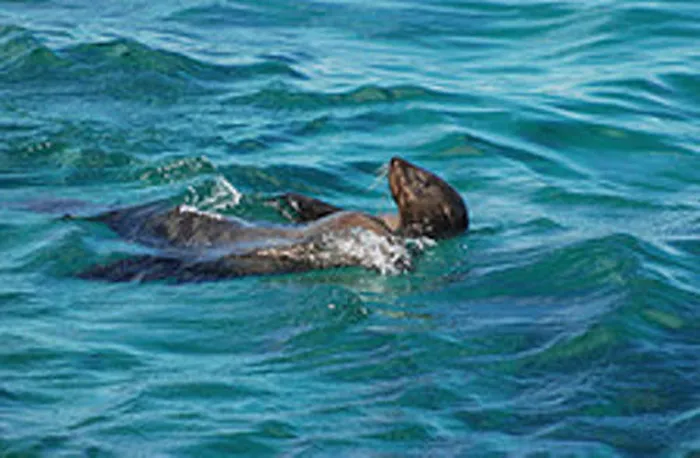Grootbos reserve flourishes from seed of inspiration

It started with a simple camping trip to the Cape's Gansbaai region, back in 1991. Heiner Lutzeyer and his son, Michael, just wanted a few simple days resting and relaxing close to nature.
Eighteen years later, a most extraordinary project, not to mention countless associated activities, has grown out of the kernel of an idea, in the way that native plants rise and thrive in the wake of fire.
Today, Grootbos Private Nature Reserve, spanning 4 000ha, covers the land where Heiner and Michael spied a simple opportunity.
What caught the eye of the Lutzeyers back in 1991, and what sparked a unique, multipurpose facility that has become one of the best in this country, was a basic sign, "For sale, 125 hectares fynbos", a love of nature and an inspired idea.
When they first bought the land, they would spend every weekend there, driving down from Cape Town on the Friday. But their friends thought they would eventually return to the city. Little did they know.
Originally, they built five self-catering chalets to try to entice visitors to an area they regarded as one of the finest in all South Africa. As Michael Letzeyer says today, "People always talk about the Big Five when they go to game reserves to look at animals. But we have a big five on the coast here: whales, sharks, seals, penguins and dolphins. And we always sought to be an attraction that targeted people who wanted to come and look at flowers."
They soon realised international guests did not want self-catering, so in 1997 they opened a four-star facility they called the Garden Lodge. That was quickly extended to contain 11 suites, and today they have another lodge, the five-star Forest Lodge which employs 105 local people. They market it as "luxury in harmony with nature".
It was nature that first attracted Lutzeyer and has done so ever since.
They sub-divided the land into 49 plots where they thought they would find different vegetation. In fact, what they unearthed stunned them. "We got to 323 different species of plants, one of which, Erica magniasilvia, was new to science.
"Today, we boast 756 species of plants. All the plants are categorised and, in all, we have discovered five new species."
In 1996, Sean Privett, a botanist who had done a Masters at UCT, joined Lutzeyer as a business partner and the development and exploration of the many plants in the Cape floral kingdom, really took off. The area is home to more than 9 000 species, almost 70% of which are unique to the Cape.
Lutzeyer says: "Sean inspired me, showing me how interesting plants can be."
In 2000, Grootbos started a conservation programme to preserve the area around them. Fourteen nearby landowners joined them in the project.
Another of Lutzeyer's ambitions was always to involve the local community in his plans and projects. He found it curious that in South Africa, you don't need education to become a landscaper, and decided to found a gardening school.
With the help of €200 000 funding from the German government, the school was opened in 2003. Each year, they train 12 previously disadvantaged pupils in a one-year course covering horticulture and life skills.
The 60 local students tutored in five years have all gone on to find employment.
When South Africa was awarded the 2010 World Cup by Fifa, Lutzeyer spied another chance. "I realised this was a golden opportunity to find funding, so we took a decision to try to build a sports facility in Gansbaai. The council gave us the land, 14ha, and we raised R6-million from various sources."
Soon they built a clubhouse, complete with showers for both boys and girls. But with 22 local clubs in sports such as football, netball and tennis starting to use the facilities, they quickly realised they needed something else.
Lutzeyer persuaded a contact in the English Football Association to donate a full-size artificial turf pitch. Today, probably the most modern synthetic turf pitch in all South Africa is in Gansbaai, and most afternoons up to 100 local children aged from six to 19 can be seen using the facilities.
Some human beings have the knack of turning difficulties into achievements. But when nature intervenes, it is a lot harder for mankind to emerge successfully.
In 2006, a devastating fire swept through Grootbos. The new lodge was completely destroyed, burnt to the ground. Fortunately, it was insured, but the sense of loss was still immense.
Yet Lutzeyer still spied something positive amid the ruins. "We were immediately excited by what sort of plants we would find re-emerging after the fire. What happened was that we found species that had not been seen for 40 years. It was amazing. The fire was huge, yet within a week plants started emerging."
In all, they found about 200 plants growing out of the ashes.
Now, an entire diverse ecosystem exists at Grootbos.
You might think that at 57, especially with the new lodge long since rebuilt and busy with visitors, Lutzeyer would now begin to ease off.
"I am a driven person, I am always searching for the next venture," he tells me. "I think I have the knack of seeing opportunities and turning them into reality."
Perhaps it's not surprising plants grow so well on Michael Lutzeyer's land. Anyone or anything would surely feel energised in his company.